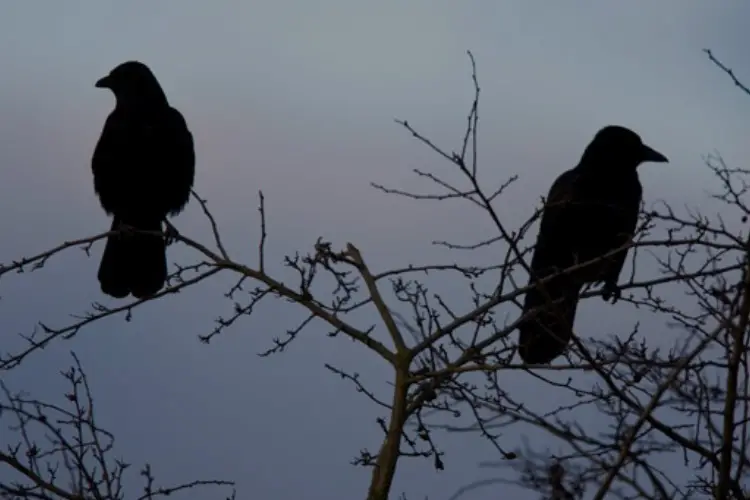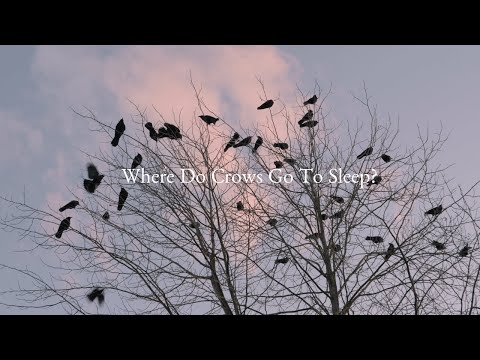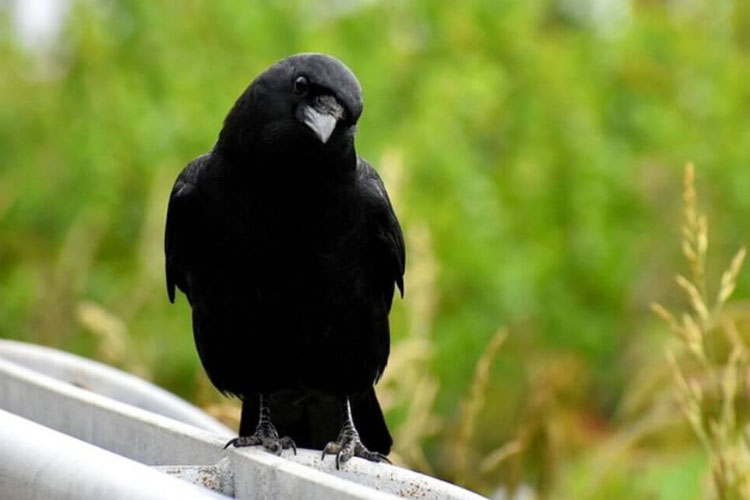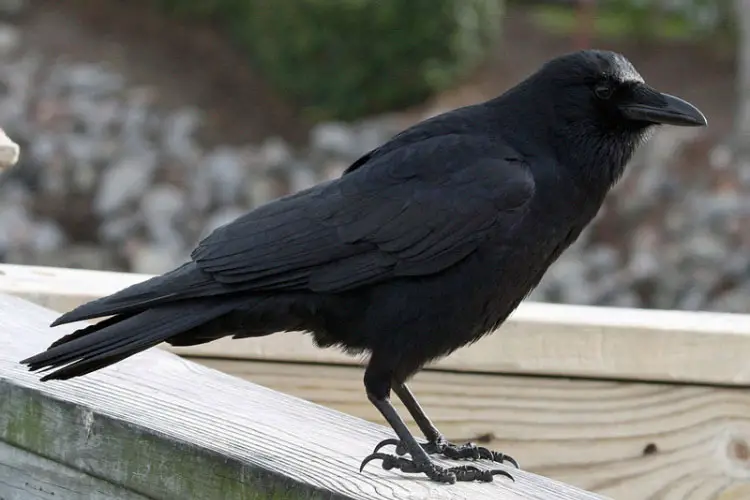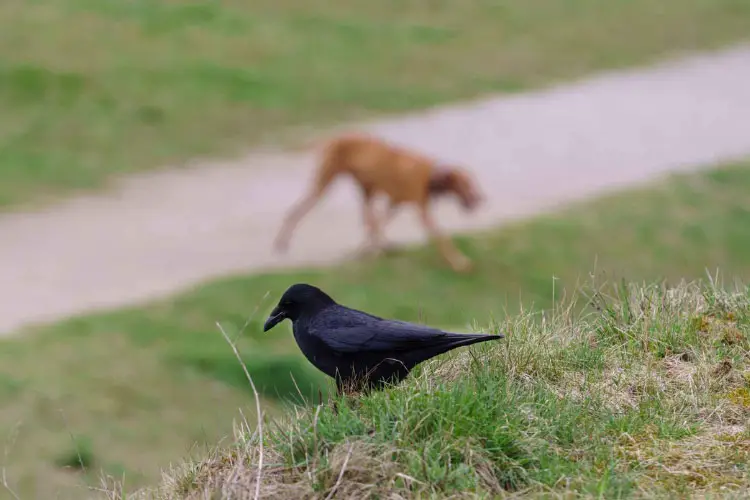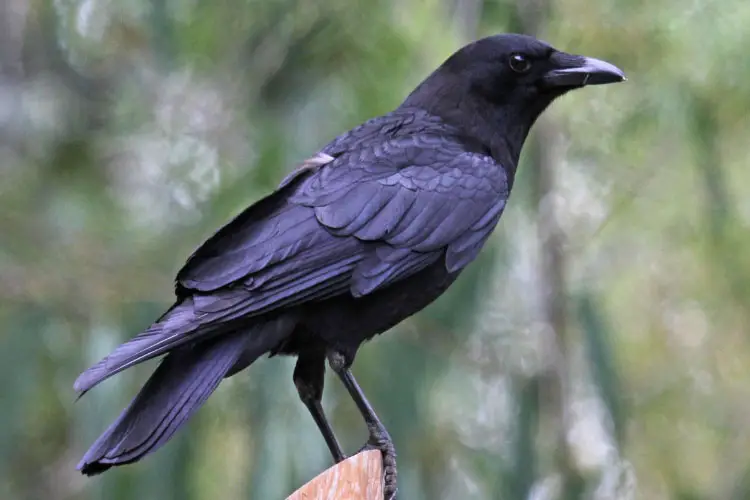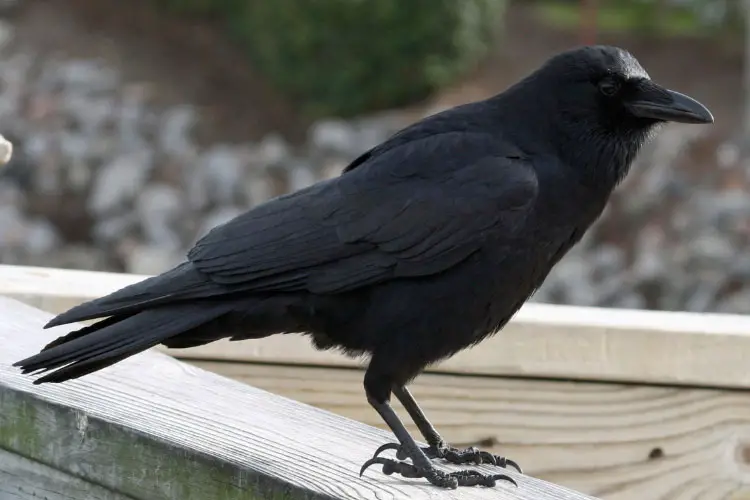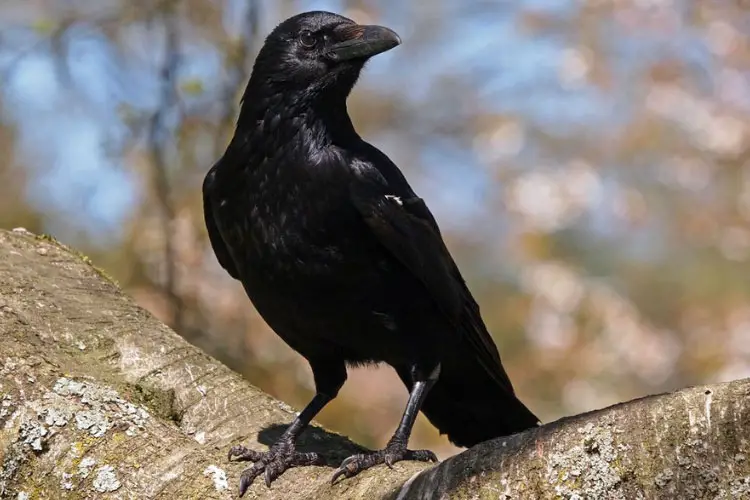You might have seen crows flocking together before sunset. Have you ever asked yourself where crows go in the dark? Or, what do they do at night?
Are crows nocturnal? No, crows aren’t nocturnal. Instead, they are diurnal birds. Which means they are chiefly active during the day. Once the light goes down, they flock in large groups to head to their roosting area and socialize. Though many birds have great night vision, crows can’t see very well in the dark.
We will elaborate on this topic down the lane. Make sure you keep reading.
Are Crows Nocturnal?
As we sometimes hear crows cawing at night, there is a misconception that crows are nocturnal. But crows are actually diurnal, and they mostly remain active during the day. In the daytime, they can fly alone or in groups to find food or roam around.
Before sunset, they gather in large groups to socialize and fly to their sleeping area. When the sun goes down, they settle for the night and usually don’t come out unless it’s an emergency.
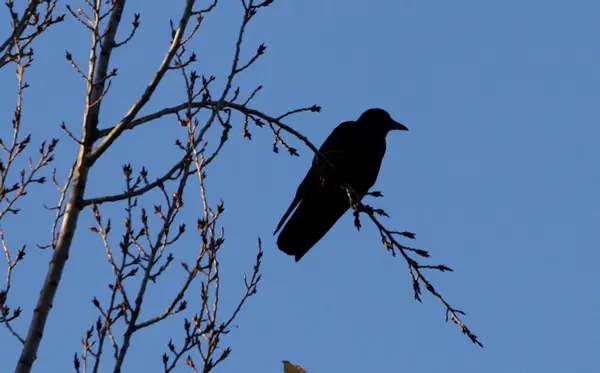
If they sense any danger, such as a predator roaming around nearby, they might come out of the nest and caw to warn other crows in the area. Otherwise, crows don’t usually come out at night. This clearly shows crows aren’t nocturnal.
Do Crows See in the Dark?
Birds usually have a tetrachromatic vision. It means they have four different cone cells to work as light receptors. Where humans can see three primary colors, birds can see UV light along with those colors. This broadens the light spectrum birds can see. But is it applicable for crows?
Crows don’t have night vision as they aren’t nocturnal like owls or nighthawks. As they don’t have night vision, they can’t see in the dark. They aren’t so sensitive to UV light as well. You may ask, why do crows at night come out of their nest then?
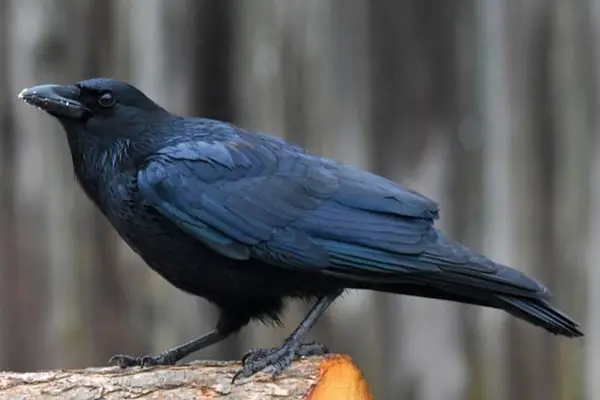
Well, if a crow has its nest near a lamppost or any other light source, it might slightly see at night. But that light isn’t enough for them to fly or find food. So, crows won’t usually come out in the dark as they can’t see things well. When it’s pale dark outside before dawn, crows will leave their nest and start their day in search of food.
Why Crows Make Noise At Night?
It should be clear now that crows don’t have any night vision, nor are they nocturnal. But why do some crows make noise at night when they are supposed to roost or sleep? It can happen for many reasons. Here are some of them.
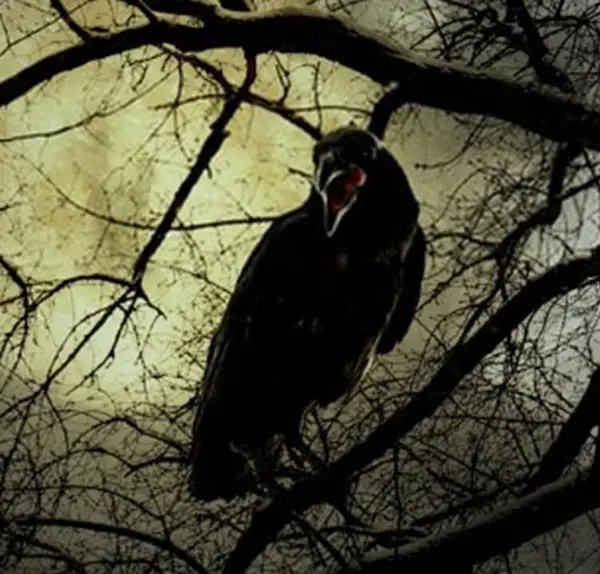
Also read: Do Crows Eat Squirrels?
Fear of Predators
Crows like building their nests on high grounds such as tall trees, hedgerows, or window ledges. But in some cases, they might not find a suitable nest to live in. In such situations, crows tend to live in damp areas.
Snakes and night owls are two of the main nocturnal predators that crows fear the most. Though they can’t see well in the dark, they have other sensory organs to detect predators near them.
And when they sense any danger or predator nearby, crows can come out of their nest and start cawing. To alert other crows in the group and seek protection from predators. Crows are known to be highly social, and they always keep an eye on the safety of their flock.
Disturbance in Sleeping
Crows might not have enough trees in urban areas to make their nests. So, they will tend to live on windows shades of high buildings or trees on the roadside. As these areas are mostly lightened, crows might have trouble sleeping in their nests.
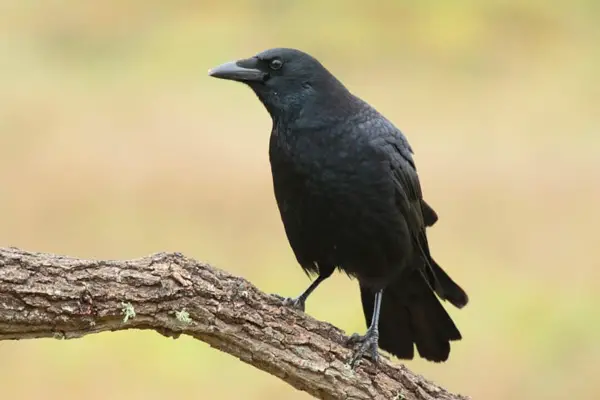
Even if there is loud noise near their nests or street light sources directly fall upon the nest, crows might get disturbed while sleeping and come out of the nest. They will also start cawing in such cases.
Random Cawing by Baby Crows
It is entirely natural for baby crows to make noise at any time. Though adult crows sleep at night, baby crows might get awake because of hunger or for any other reason and start cawing.
Warning Other Crows About Bad Weather
Crows and other birds might sense an incoming storm better than humans. If there is any sign of bad weather, crows might make noise to warn the whole group to prepare for the danger.
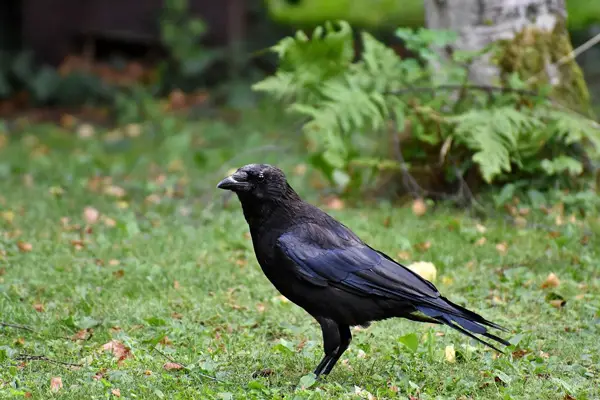
Joining Other Crows
Even if a crow is sleeping in peace near your house, it might hear the cawing of other crows or corvids living in the area. As a sign of their socialism, crows might get awake and start cawing to give company to other crows.
Where Do Crows Go To Sleep at Night?
Every day at sunset to dusk, the crows of Vancouver return to their roosting spots at Still Creek in Burnaby to settle in for the night. Betty and I go to observe this incredible sight, and recount our past run-ins with these intelligent city birds.
FAQ
Though we have explained almost everything, you might still have some unanswered questions. Find their answers below.
There is a common superstition that hearing crows making noise at night is related to bad luck or danger. But crows’ noise has nothing to do with any evil things.
Though it is normal for crows to be active during the daytime, urbanization can change the night routine of crows. As cities are crowded with bright lights at night, crows might perceive their roosting time incorrectly. But no crow will stay utterly awake during the night.
Crows don’t find food at night and can’t see well in the dark, so they won’t usually fly at night. But in case of any danger, they can fly to get away from the danger.
Related: Can Crows Talk?
Final Words
Crows are considered one of the most intelligent birds and the most common bird we see around. Though they might fly up to 40 miles per day in search of food, the whole flock will roost and sleep together at night.
Crows aren’t nocturnal and can’t see well at night, so their nighttime activity is very limited. We hope this article helped you find everything you were searching for.
